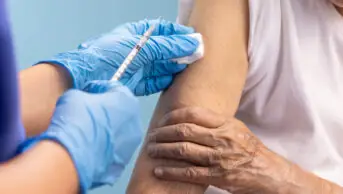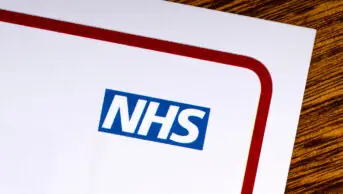Strong claims about the effectiveness of drugs are nothing new. But, on 13 January 2020, at the JP Morgan annual healthcare conference in San Francisco, California, the NHS announced its intent to pursue an agreement with Novartis for its product inclisiran, an injectable, cholesterol-lowering drug given every six months.
Lord David Prior — then chair of NHS England — told the conference that the “innovative and groundbreaking collaboration could transform the health outlook of tens of thousands of people suffering from heart disease”.
Inclisiran, sold under the brand name Leqvio, was acquired by Novartis when it bought manufacturer The Medicines Company in 2019 for US$9.7bn. It acts on PCSK9 protein production, enabling the liver to process more low-density lipoprotein cholesterol (LDL-C), reducing blood levels by around 50% in clinical trials[1].
At the time of the conference, the medicine had yet to be approved by drug regulators or the National Institute for Health and Care Excellence (NICE) but, over the next 18 months, it appears that the Department of Health and Social Care (DHSC) and NHS England sought to expedite this process.
More than 200 pages of correspondence between NICE and government officials, released to The Pharmaceutical Journal under the Freedom of Information (FOI) Act on 11 September 2023, suggest that NICE was under pressure to deliver a final appraisal quickly, despite some initial concerns from the appraisal committee that it was “not in a position to make a positive recommendation based on the evidence it was presented”.
The inclisiran agreement
In a press release published on the day of the JP Morgan conference, the DHSC, Department for International Trade, NHS England and the Office for Life Sciences said that, in “a world-first”, the yet-to-be-approved inclisiran was “expected to be available through a population-level agreement — pioneering a game-changing approach to reducing the risk of heart disease”[2].
The press release also announced a clinical trial, saying that the NHS would provide a test bed to find out more about inclisiran’s effectiveness in preventing high-risk patients from having their first cardiac event. The trial, ‘ORION-17’, would be run by the University of Oxford (see Box).
Box: Pulling the plug
The government announced in 2020 that a large-scale clinical trial was planned to test inclisiran’s effectiveness for primary prevention of cardiovascular disease — called ‘ORION-17’ and carried out by the University of Oxford.
Details of the partnership agreement between the NHS, National Institute for Health Research, the University of Oxford and The Medicines Company, released following a Freedom of Information request to the Department of Health and Social Care, state: “The quality, speed and efficiency of ORION-17 will surpass ORION-4 [an ongoing trial led by the University of Oxford].”
However, the trial was pulled by Novartis in March 2023, despite targets to recruit at least 30,000 participants.
The Financial Times reported in March 2023 that an initial rollout of inclisiran via GPs had resulted in low take-up. Instead, the company has switched to a smaller trial — ‘VICTORION 1 PREVENT’ — that will recruit 14,000 people from different countries, nearly 1,000 of whom from the UK[3].
Novartis told The Pharmaceutical Journal in October 2023 that, after careful evaluation, it decided not to move forward with ORION-17, instead deciding to prioritise VICTORION 1 PREVENT “to best meet the strategic needs for our global footprint in the same indication”.
The proposed agreement between the NHS and Novartis was based on three partnership projects in place between The Medicines Company, the NHS, the National Institute for Health Research and the University of Oxford before Novartis’s involvement. According to draft documents released by the DHSC on 16 November 2023 following another FOI request, the partnerships agreed to support ongoing and confirmatory clinical trials for inclisiran. They had also agreed to enter into an innovative contract for inclisiran’s supply, distribution and use, as well as to convene an industry consortium to improve manufacturing efficiency.
Inclisiran would be put through NICE “at the earliest opportunity possible and NHS England will agree a population-level commercial arrangement with the company to make it widely available to patients as soon as 2021”, the press release said.
[The agreement] has such senior scrutiny that we have to make it happen
An email sent in September 2020 from NHS England to a member of staff at the National Institute for Health and Care Excellence
Following the government’s 2020 announcement, emails obtained by FOI requests to NICE suggest a degree of political pressure from NHS and DHSC officials to approve inclisiran quickly, which a former senior NICE employee told The Pharmaceutical Journal, under condition of anonymity, was “extremely unusual”.
One email sent from NHS England to a member of staff at NICE in September 2020 noted that “[the agreement] has such senior scrutiny that we have to make it happen”.
Before the independent NICE committee looking at inclisiran met on 11 May 2021, its chair raised questions around the uncertainty of the evidence. In April 2021, he wrote in an email copied to several NHS England and NICE staff members: “Given the uncertainty, I wonder if ‘only in research’ is something the committee should consider. Would that research be said government/Oxford/Novartis collaboration? This might then allow us to revisit this in perhaps three [to] five years to see how the evidence on cardiovascular events/mortality is stacking up.”
A pharmacy adviser at Specialised Services commissioning, NHS England, replied to the email, saying they thought “it would be reasonable given the uncertainty to recommend in research only and revisit in three years’ time with some additional real–world data”.
NICE told The Pharmaceutical Journal that “it is within our normal processes for the NICE team and the chair to identify areas for discussion in advance of the committee discussion to ensure a full and efficient committee meeting”.
However, in June 2021, the NHS chief commercial officer, questioned the uncertainty of long-term benefits in an email to two NICE staff members. “As a ‘layman’ this surprised me as lower LDL has been closely linked with real-world cardiovascular benefits for years. This is why inclisiran was a choice in the first place for population health,” he wrote.
Following the independent NICE committee meeting, NICE wrote an email to NHS England on 19 May 2021 with an update. “Given the level of interest in inclisiran, I wanted to update you on where we are following the committee discussion last week… The committee is not in a position to make a positive recommendation based on the evidence it was presented with last week. I am therefore writing to request we have a meeting next week to discuss the conclusions and give more details on the next steps that can be done to progress this topic.”
An email that was sent from then health secretary Matt Hancock‘s office to senior Office for Life Sciences civil servants on 14 June 2021, which “noted that we must get this deal over the line”, was then forwarded to NICE “to see strong steer from [the secretary of state]”.
An implementation plan for the inclisiran roll out was put together before final guidance from NICE had been issued (see Timeline)[4].
Preferred clinical pathway
At the same time that NICE was reviewing inclisiran, NHS England and the Accelerated Access Collaborative — a partnership between patient groups, government bodies, industry and NHS bodies, working to streamline the adoption of new innovations in healthcare — were updating the lipids pathway endorsed by NICE to include inclisiran and another lipid-lowering drug recently recommended by NICE, bempedoic acid[5].
However, some clinicians — including the chair of the clinical advisory group (CAG) working on redrafting the lipid pathway — had concerns about where in the clinical pathway inclisiran would be used. If further lipid-lowering treatment was warranted, the CAG wanted ezetimibe, which had clinical data to support the reduction of strokes, to be offered before inclisiran.
The CAG chair wrote to NICE staff in an email in August 2021: “The CAG felt strongly that, while inclisiran may be cost effective either after maximum tolerated statins or after maximum tolerated statins with ezetimibe… the clinical end-point data supporting ezetimibe… should mean that wherever possible statins plus ezetimibe is the preferred strategy before inclisiran, until end-point data [are] established for inclisiran.”
However, the Innovation, Research and Life Sciences group at NHS England was eager to make sure that inclisiran was an option without the need for ezetimibe first. In July 2021, the group’s deputy director wrote in an email to NICE staff that “it is critical that we can position this [inclisiran] alongside ezetimibe and that the content of NICE wording confirms or at least allows this”.
In August 2021, the Innovation, Research and Life Sciences group deputy director wrote again to staff at NICE: “Our lead clinicians, who are… redrafting… the NICE endorsed [lipid] pathway… have a number of questions and gaps in understanding and in some cases this is leading to the assumption that inclisiran will be positioned after ezetimibe rather than alongside.
“Given the volume of patients receiving ezetimibe and this being a gateway to inclisiran, this position would critically undermine our ability to deliver an ambitious and extremely high profile, minister-supported programme.”
Several doctors and specialists have questioned the wisdom of this. They told The Pharmaceutical Journal that, if thinking properly about the management of lipids, inclisiran would be at the end of the pathway. As one member of a prescribing committee, who wanted to remain anonymous, told us: “Wrong drug, wrong time”.
Paula Byrne, an evidence synthesis specialist at the University of Galway, Ireland, who has published research on LDL-C and cardiovascular outcomes, told The Pharmaceutical Journal that she is surprised that NHS England did not wait for the publication of ORION-4, an ongoing trial to assess cardiovascular outcomes in people with a history of cardiovascular disease. This trial, being run by the University of Oxford, is due to be completed in 2026.
Byrne adds that, while inclisiran is “very good at lowering LDL cholesterol”, this does not necessarily translate into reducing cardiovascular disease.
Although current cholesterol clinical guidelines are based on meta-analyses that suggest a relative risk reduction of major vascular events of about a 21% for every 1.0 mmol/L reduction in LDL-C levels, a 2022 systematic review and meta-analysis co-authored by Byrne did not establish a conclusive association between the magnitude of LDL-C reduction and the size of treatment effect[6,7].
Industrial policy
Overall, NICE seemed to be “working with the government to get the approval done fast, rather than protesting about the pressure it was being put under”, says the senior former NICE employee speaking anonymously to The Pharmaceutical Journal.
The former employee added that NICE needs to be independent, emphasising that it is important that it can robustly defend itself against any attempt to interfere with its processes as it has done many times before. “NICE has been internationally respected for over 20 years because of its robust, evidence-based and — crucially — independent approach to decision-making.”
When The Pharmaceutical Journal questioned NICE on whether there was political influence in its process of approving inclisiran, a spokesperson defended the assessment, saying its processes were followed.
“NICE is justly regarded as a world-leader for the integrity, robustness and transparency of its processes and methods for evaluating new medicines,” they said.
“That these processes and methods were followed in the case of NICE’s appraisal of inclisiran is clearly demonstrated in the information provided in our response to your freedom of information request.”
In a statement, Novartis said that its programme is delivered in line with all regulatory protocols and requirements. “Prior to implementation of a population health agreement with NHS England, inclisiran was assessed via independent NICE appraisal, which is well known to be amongst the most robust in the world.
“This involves significant clinical dialogue and debate before final guidance is produced,” it added.
It’s hard not to be concerned that, with respect to pharmaceuticals, the NHS has been captured as an instrument of industrial policy
Chris McCabe, professor of health economics at Queen’s University Belfast
But Chris McCabe, professor of health economics at Queen’s University Belfast — who specialises in the field of health technology assessment and has worked with NICE on several projects, including being founding director of the NICE decision support unit between 2002 and 2006 — reviewed the emails obtained under FOI for The Pharmaceutical Journal.
Referring to staff in the commercial division of NHS England and the Office for Life Sciences, he says: “Having a group whose raison’ d’etre is to negotiate discounts to enable the adoption of technologies that’s divorced from the question: ‘Is this a good technology?’ is a problem.”
“It’s hard not to be concerned that, with respect to pharmaceuticals, the NHS has been captured as an instrument of industrial policy,” he adds.
When The Pharmaceutical Journal shared these concerns with NHS England, a spokesperson pointed to its “strong track record” of using its “commercial capabilities to ensure access to effective new treatments for patients”.
They added that cardiovascular disease is the biggest cause of avoidable mortality in England. “Inclisiran is a clinically effective, NICE-recommended cholesterol drug that provides an additional treatment option for NHS patients.”
Roll out
In September 2021, some 18 months after the NHS announced its plans to investors in the United States, NICE published its final draft guidance[8].
The draft NICE guidance said that clinical trial evidence shows inclisiran can lower LDL-C levels when statins or other lipid-lowering therapies have not reduced them enough, but it was more circumspect about the cardiovascular benefits than the government had been, stating that there was “no long-term evidence on whether inclisiran reduces cardiovascular events”. Although it did note that reduction in LDL-C has been used as a surrogate for reduction in cardiovascular risk in previous guidance on cholesterol-lowering drugs.
The guidance also highlighted that there were no comparative data with other cholesterol-lowering treatments. But, with a discount, inclisiran was considered by NICE to be cost-effective in secondary prevention.
In October 2021, NICE published the final appraisal, recommending that inclisiran is an option for secondary prevention when statins, with or without other lipid-lowering therapies, have not reduced LDL-C levels sufficiently. For primary prevention, inclisiran was recommended for use only in the context of a research study[9].
A government press release issued on 1 September 2021 to coincide with the final draft guidance announced the “world-leading deal” and stated: “The NHS is rolling out the injection at unprecedented scale because the health service and manufacturer have concluded a deal that enables the NHS to utilise inclisiran at an affordable and cost-effective price[10].”
While the details of the financial deal are commercially confidential, the NHS list price is just over £1,900. But senior NHS England sources told The Pharmaceutical Journal that, with the discount, the cost of the drug is around £200–250 per dose.
NHS England is funding the drug from its central budgets until July 2024 so that local finances are not a barrier to access[11]. Initially, GPs would buy inclisiran for a nominal fee of £45 from the national wholesaler but get £55 back, with a fee of £10 to administer it. NHS England then reduced the difference to £5 in April 2023 while setting new ‘Quality and outcomes framework’ thresholds for lipid control. Novartis is now advertising inclisiran as a way for GPs to hit the new targets for LDL-C[12].
Slow uptake
Even though the agreement was supposed to be a flagship scheme to highlight the benefits of joint working between the NHS and the pharmaceutical industry, clinicians have not shown the same enthusiasm for inclisiran as the government.
Prescribing has faltered amid controversy over the rationale for its use in primary care. In a joint statement published in December 2021, the Royal College of GPs and the British Medical Association urged caution about prescribing inclisiran, raising concern that long-term data on cardiovascular outcomes and safety were not available. The statement also said inclisiran had been approved before regional medical optimisation committee review and additional capacity or resources might be needed to deliver the drug in primary care[13].
“Be aware that if you initiate inclisiran in primary care or continue to prescribe the medication following initiation elsewhere as the decision maker, you take full responsibility for the prescribing”, the statement said.
The government’s aim was for 300,000 people to be using inclisiran by 2024. However, an FOI request submitted to the NHS Business Services Authority by The Pharmaceutical Journal shows that only 4,549 people were prescribed inclisiran in primary care between NICE’s approval in October 2021 up to July 2023 — a far cry from the original target.
“Doctors are not just a bunch of people who you say jump and they ask how high,” says McCabe, adding that the roll out of inclisiran shows there has been a fundamental misunderstanding by the government of the culture of health and healthcare.
Still committed
Despite the slow uptake, different parties remain committed to the partnership.
Novartis told The Pharmaceutical Journal its agreement has been challenged by environmental factors, such as the COVID-19 pandemic, and subsequent capacity challenges within the NHS.
In a statement it said it “stands firmly behind the deal” and “remains committed to running our clinical trials in the UK where possible”.
A spokesperson for the NHS says: “The pandemic underlined the importance of strong relationships between the pharmaceutical industry and the NHS, enabling medical innovations to reach patients faster and collaborating on shared challenges such as the medicines supply chain.”
Indeed, FOI requests to NICE show a working group is still committed to rolling out the drug.
However, as the country approaches a general election, questions have to be asked about how future governments may approach similar style purchase agreements with manufacturers.
- 1Ray KK, Wright RS, Kallend D, et al. Two Phase 3 Trials of Inclisiran in Patients with Elevated LDL Cholesterol. N Engl J Med. 2020;382:1507–19. https://doi.org/10.1056/nejmoa1912387
- 2Department of Health and Social Care, Department for International Trade, NHS England, et al. New heart disease drug to be made available for NHS patients. gov.uk. 2020. https://www.gov.uk/government/news/new-heart-disease-drug-to-be-made-available-for-nhs-patients (accessed 14 December 2023)
- 3Neville S, Kuchler H. Novartis scraps drug trial in blow to UK life sciences ambitions. Financial Times. 2023. https://www.ft.com/content/d7685eaa-5635-4e64-a390-b48908874bfe (accessed 14 December 2023)
- 4Greater Manchester partners with industry on pioneering study to test novel cholesterol-lowering treatment in the community. Health Innovation Manchester. 2021. https://healthinnovationmanchester.com/news/greater-manchester-cholesterol-inclisiran-study-launch/ (accessed 14 December 2023)
- 5Accelerated Access Collaborative. Summary of national guidance for lipid management. NHS England. 2023. https://www.england.nhs.uk/aac/publication/summary-of-national-guidance-for-lipid-management/ (accessed 14 December 2023)
- 6Efficacy and safety of more intensive lowering of LDL cholesterol: a meta-analysis of data from 170 000 participants in 26 randomised trials. The Lancet. 2010;376:1670–81. https://doi.org/10.1016/s0140-6736(10)61350-5
- 7Byrne P, Demasi M, Jones M, et al. Evaluating the Association Between Low-Density Lipoprotein Cholesterol Reduction and Relative and Absolute Effects of Statin Treatment. JAMA Intern Med. 2022;182:474. https://doi.org/10.1001/jamainternmed.2022.0134
- 8Final appraisal document: Inclisiran for treating primary hypercholesterolaemia or mixed dyslipidaemia. National Institute for Health and Care Excellence. 2021. https://www.nice.org.uk/guidance/ta733/documents/final-appraisal-determination-document (accessed 14 December 2023)
- 9Inclisiran for treating primary hypercholesterolaemia or mixed dyslipidaemia. National Institute for Health and Care Excellence. 2021. https://www.nice.org.uk/guidance/ta733 (accessed 14 December 2023)
- 10NHS cholesterol-busting jab to save thousands of lives. NHS England. 2021. https://www.england.nhs.uk/2021/09/nhs-cholesterol-busting-jab-to-save-thousands-of-lives/ (accessed 14 December 2023)
- 11Summary information on the funding and supply of inclisiran (Leqvio®). NHS England. 2023. https://www.england.nhs.uk/aac/wp-content/uploads/sites/50/2023/04/B1913-summary-information-on-the-funding-and-supply-of-inclisiran-v-april-2023.pdf (accessed 14 December 2023)
- 12Quality and Outcomes Framework guidance for 2023/24. NHS England. 2023. https://www.england.nhs.uk/publication/quality-and-outcomes-framework-guidance-for-2023-24/ (accessed 14 December 2023)
- 13Royal College of General Practitioners, British Medical Association. RCGP and BMA update: Information on the proposals for the prescription of inclisiran in primary care settings. Royal College of General Practitioners. 2021. https://www.rcgp.org.uk/representing-you/policy-areas/inclisiran-position-statement (accessed 14 December 2023)
- This article was amended on 18 December 2023 to clarify the date on which NICE wrote an email to NHS England
5 comments
You must be logged in to post a comment.




The problem with the drug is that it wasn't commissioned properly. Primary Care are uncomfortable with brand new injectable medicines, and Secondary Care would need to be paid to have the necessary capacity.
Excellent journalism, well done for highlighting unacceptable political interference at the highest level in independent long established professional processes.
It’s good that professional practitioners have resisted prescribing of a medicine they appear to be incentivised by NHS England to prescribe.
An exploration of the motivation and motivators behind the politics is now essential.
Thank you to the authors for an excellent piece of investigative journalism.
NICE should be ashamed of what it has become. That the published documents from NICE TAs now contain blacked out costings, marked "commercially confidential" is nothing short of a scandal.
Try reading the published supporting papers for this drug. Or Romosuzumab, or any number of others. You can't, because the numbers are blacked out.
Thank you again, both of you!
Thank you for the time and effort you have taken to highlight attempts to politically influence the decisions of NICE as an independent body. The motives of NHSE and the government remain unknown - some may be commendable in principle, in terms of securing the UK's future as a host for important clinical research. NICE was right to take a more circumspect view of the place of Inclisiran in the treatment pathway until long term cardiovascular outcomes, side-effects and influence on mortality are known. Is there a diminishing amount of Physician input into NICE at board level? Unwarranted government interference in the decision-making process of NICE is of grave concern, particularly as large NHS datasets are increasingly being made available for analysis by machine learning algorithms which will no doubt lead to commercially promoted 'opaque' decisions which the NHS will be under pressure to act upon. The NHS must resist becoming an instrument of industrial policy and strive vigorously to keep patient welfare at its heart.
An excellent piece of journalism. The two most troubling points are
1. Who initiated this - in the article the office of the health secretary at the time seems to be implicated. I wonder if anyone working there has or had commercial interests with Novartis then or now
2. There seems to be a fundamental misunderstanding from those that pushed it through about lab data and end outcomes not being the same. Surely this is very concerning and suggests a lack of knowledge and or independence
Were the journalists involved ever able to find out who was involved in either of the above?